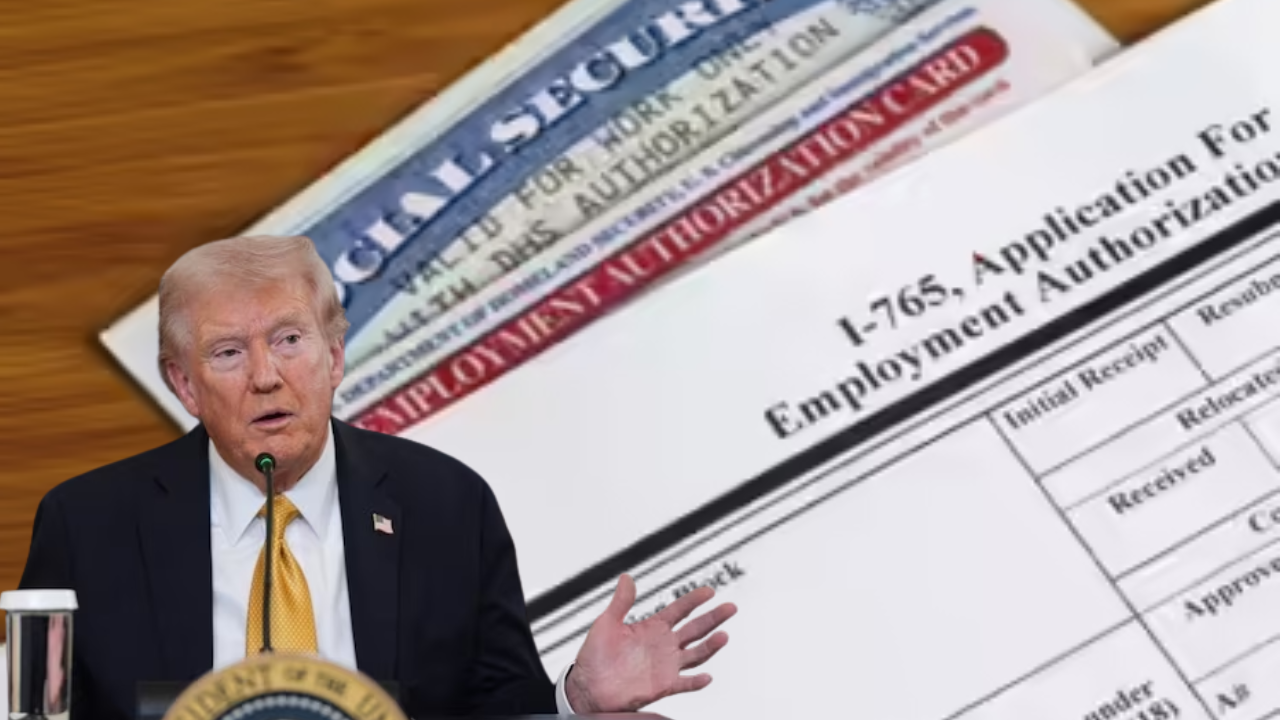The U.S. Department of Homeland Security (DHS) has introduced a new interim rule that ends the automatic extension of Employment Authorization Documents (EADs) for foreign workers. This decision is expected to significantly affect thousands of migrants, including a large number of Indian professionals currently employed in the United States.
According to the DHS statement released on Wednesday, individuals who file to renew their EADs on or after October 30, 2025, will no longer receive an automatic extension. However, those whose permits were extended before this date will not be impacted.
The new measure, introduced under the Trump administration, emphasizes “enhanced vetting and screening” of applicants to strengthen national security and public safety.
What Has Changed
The rule replaces the Biden administration policy, which previously allowed certain immigrants to continue working for up to 540 days after their work permits expired—provided their renewal applications were filed on time and met eligibility requirements. Under that earlier policy, workers could maintain employment while waiting for their renewed documentation to be processed.
In contrast, the new rule removes that automatic protection, meaning any delay in renewal approval could lead to temporary job loss for many foreign professionals.
Limited Exceptions Remain
The DHS noted that certain exceptions will still apply, such as extensions allowed by law or specific notices published in the Federal Register related to Temporary Protected Status (TPS) documentation.
The U.S. Citizenship and Immigration Services (USCIS) explained that more frequent reviews of work authorization will help detect fraud and identify applicants with potential security concerns.
USCIS Director Joseph Edlow described the rule as a “common-sense step” and stated, “Working in the United States is a privilege, not a right.”
Guidance for Immigrants
To avoid employment gaps, USCIS urges immigrants to submit EAD renewal applications up to 180 days before expiration. The agency warned that delays in filing could cause lapses in legal work authorization.
“The longer an individual waits to renew, the greater the risk of a temporary interruption in their employment authorization,” the statement read.
Who Needs an EAD
An Employment Authorization Document (Form I-766) serves as proof that a person is legally permitted to work in the U.S. for a specified period. It is typically required for individuals who do not hold permanent residency or certain non-immigrant visas.
Those with a Green Card (Form I-551) or non-immigrant work visas such as H-1B, L-1B, O, or P are exempt from needing an EAD, as their visa status already grants them work authorization.
Potential Impact on Indian Professionals
This policy shift is expected to affect thousands of Indian nationals employed in technology, healthcare, and other skilled sectors across the U.S. Many rely on EADs while awaiting Green Card approvals, a process already burdened with significant delays. Experts warn that without automatic extensions, many workers could face sudden employment disruptions and uncertainty.



